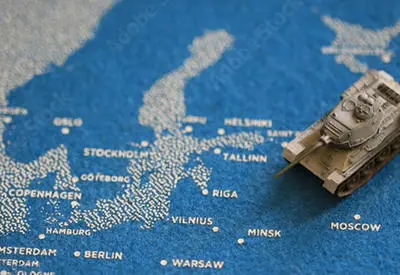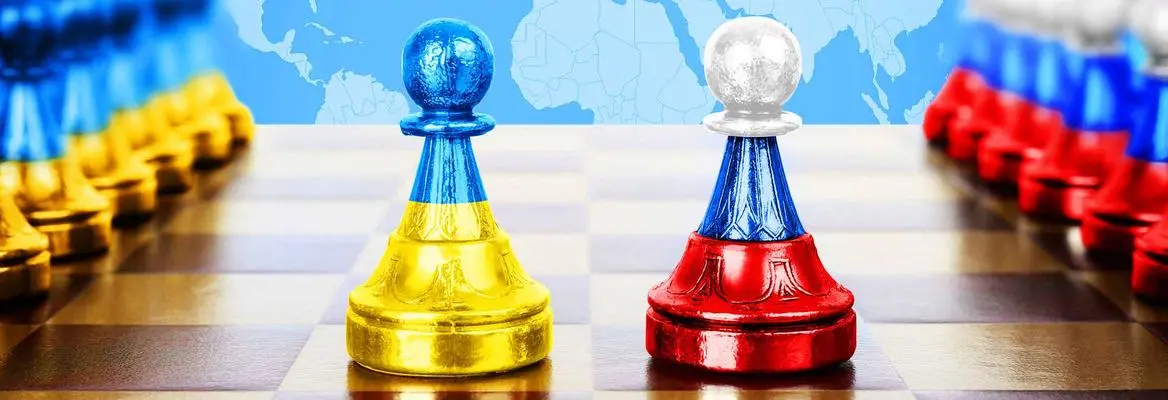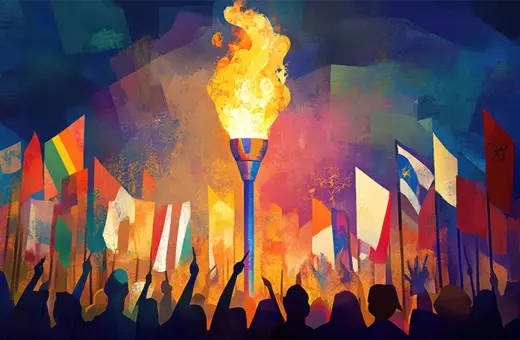Most experts agree that the Russia-Ukraine war will have to come to an end at some point. And policy makers agonize over how to ensure a peace that is both permanent and meaningful. Lasha Tchantouridzé argues that the West needs to go further than simply supplying arms and ensuring NATO membership to bring a long-lasting ceasefire.
Although Moscow has given occasional assurances to the contrary, it is widely accepted that the Russo-Ukraine war will eventually come to an end. However, it is also anticipated that Moscow may resume its campaign in Ukraine after a period of relative peace. Given this, it is in the interest of Kyiv and its supporters to seek a lasting peace settlement that would enable Ukraine to defend itself in the future. This will require catching and holding Moscow's undivided attention by targeting and threatening at least one major strategic asset of the Russian Federation, which is the Black Sea Fleet with its home base in Sevastopol. If Russia were to lose its Black Sea navy, its fight for Sevastopol and Crimea would lose strategic significance, and Moscow would be more willing to negotiate a compromise settlement in Ukraine.
 SUGGESTED READING
What victory in Ukraine looks like
By Hew Strachan
SUGGESTED READING
What victory in Ukraine looks like
By Hew Strachan
To achieve this goal, Kyiv must acquire the necessary weapons systems to bring Russia to the negotiating table. Moscow is likely to accept one of two possible peace settlement scenarios, provided that each allows for ample room for compromise. The first scenario involves restoring the status quo ante bellum and allowing Ukraine to join NATO. The country would remain divided for the time being, with the Cold War division line drawn in the Donetsk suburbs. This scenario is similar to the settlement imposed upon Germany after World War II, which eventually led to reunification.
The second scenario involves Moscow relinquishing all its conquests in Ukraine except for Sevastopol and its connecting road through the Crimea bridge. Ukraine would remain well-armed but neutral, and Russia would regain control of the Black Sea Fleet. A third scenario, a mixture of the two compromises, is also possible. With any of these peace settlement scenarios, the question of the repatriation of hostages, exchange of prisoners, war reparations, war crimes, trade, communications systems, etc., will remain on the negotiating table and will be settled gradually.
It is important to recognize that the Russo-Ukraine war does not need to continue any longer than necessary. The fact that the frontlines have remained largely unchanged in land battles since last fall is largely due to logistical and weapons supply realities surrounding the conflict. While the Russian land forces have made improvements in storage and supply, other issues within the Russian army cannot be resolved in the short term. Specifically, the military reforms implemented between 2008 and 2021 have left the infantry units ill-suited for conventional continent-scale warfare. Last year's debacles in Ukraine led the Russian high command to stop deploying infantry combat units in an enhanced battalion formation, which addressed the problem of unified command but did not solve the shortage of infantry storm troops, the competence of non-commissioned officers, the lack of knowledgeable junior commanders, and the absence of necessary logistical equipment and personnel to service them.
___
Long-range missiles, attack drones, and fighter jets are crucial for Ukraine to attack and destroy Russia's Black Sea Fleet, primarily deployed around Crimea.
___






















Join the conversation